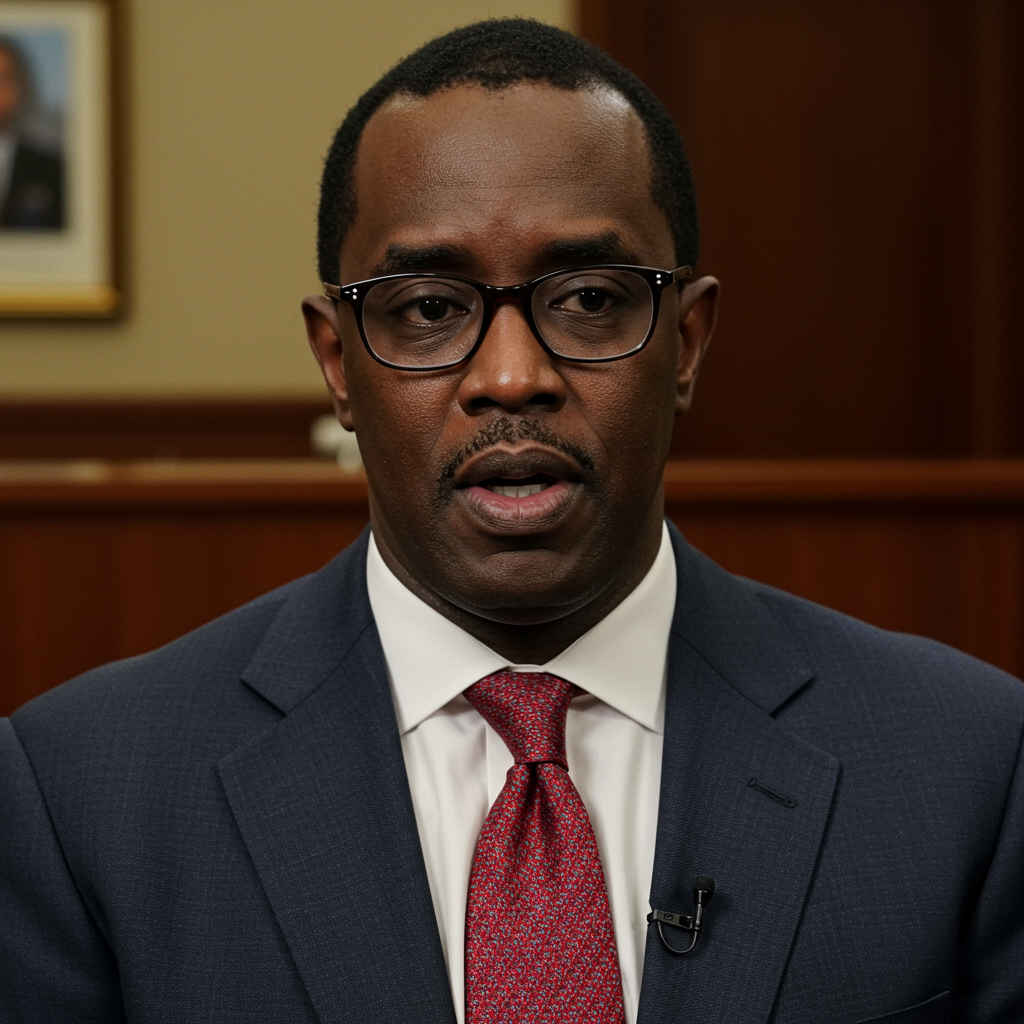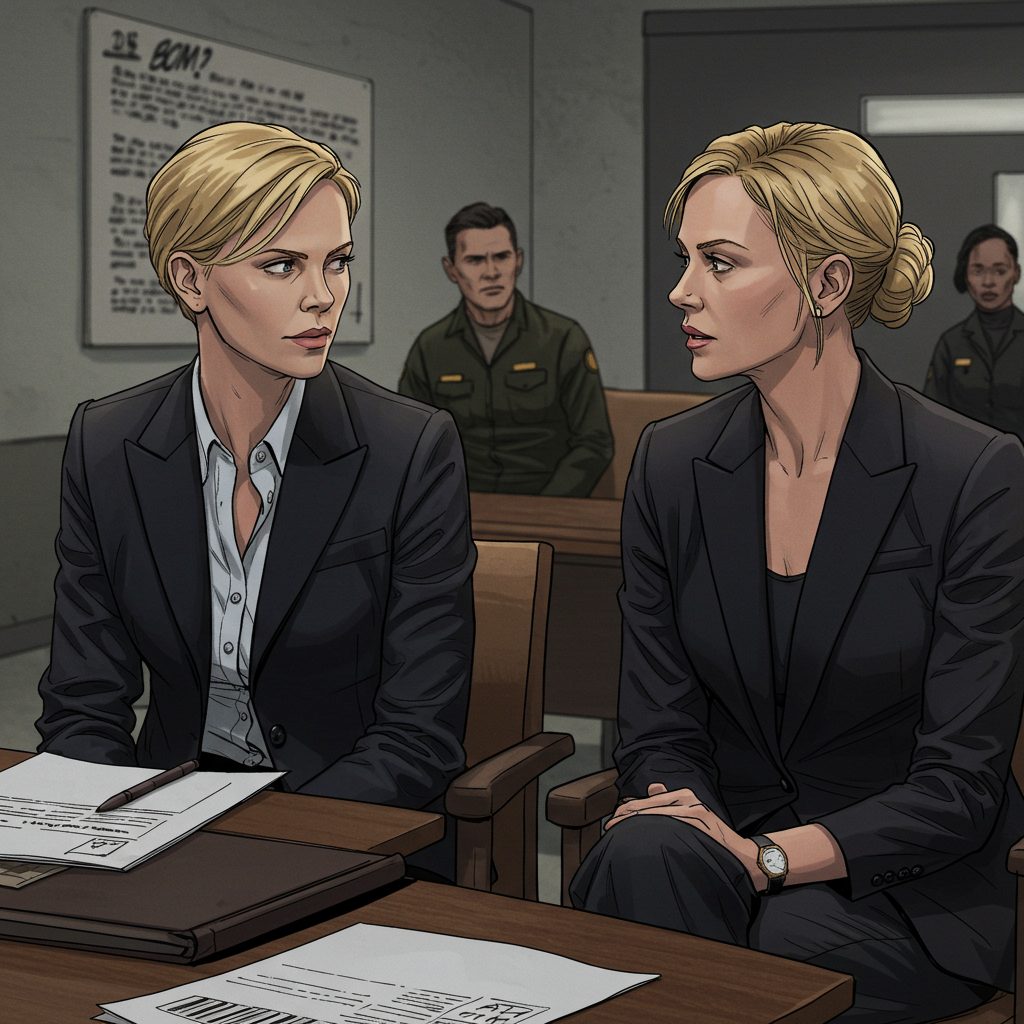Following the intense eight-week federal trial of Sean “Diddy” combs, an alternate juror is speaking out for the first time, offering a rare glimpse into the complex proceedings and the factors that influenced the split verdict. While not part of the final 12-person jury that deliberated, this individual, identified as george, closely followed the evidence and testimony presented in the Manhattan courtroom. His perspective sheds light on why the jury ultimately convicted Combs on two charges but acquitted him of the most serious counts.
George shared his insights with CNN and The New York Times just a day after the July 2 verdict. He stated that he fully “understands” the conclusions reached by the deliberating jury. After reviewing his trial notes and reflecting on the evidence, George believes he likely would have arrived at the same place.
Inside the Juror’s Mind: Understanding the Verdict
Sean “Diddy” Combs was found guilty of two counts related to transportation to engage in prostitution. However, the jury acquitted him of the more severe charges: racketeering conspiracy and two counts of sex trafficking. George indicated that the racketeering charge, the first and most serious count, was particularly challenging for the prosecution to prove.
Understanding the Split Decision
“I think there was always a little bit of doubt in people’s minds,” George told CNN regarding the racketeering charge. He felt it was inherently “a tough case to prove” and sensed this uncertainty “even from the beginning” of the trial. The concept of proving a long-term criminal enterprise, central to the racketeering charge, often presents complex legal hurdles.
The convictions on the two transportation counts stemmed from violations of the federal Mann Act. These charges specifically relate to moving individuals across state lines for illegal sexual activity. While avoiding the potential life sentence associated with racketeering or sex trafficking convictions, Combs now faces a maximum of 10 years in prison for each transportation count.
Assessing Witness Credibility
Witness testimony played a critical role throughout the trial. George commented on the perceived credibility of several key figures. He noted that the defense team seemed particularly effective in their cross-examination of witness Dawn Richard, making her appear “very not credible.” George even wrote in his notebook that it felt like a “takedown.”
Regarding the sex trafficking counts involving accusers Cassie Ventura Fine (Cassie) and the anonymous ex-girlfriend known as “Jane,” George was not convinced they were “forced.” He viewed footage and heard testimony about sexual encounters with escorts and felt the women seemed like “willing participants.” He mentioned seeing text messages from Ventura Fine that did not suggest coercion.
Despite this view on the “forced” aspect, George clarified his overall belief in Ventura Fine. He found her “very credible” and thought she wouldn’t have testified extensively if she were lying. Similarly, he generally believed “Jane,” though he found some parts of her testimony less consistent or “a little strange,” specifically mentioning her account of an alleged physical assault by Combs in 2024.
The Defense’s Impact
George expressed admiration for the work of Combs’ defense attorneys in court. He described being impressed by their strategy and execution. He also observed Combs closely during the proceedings. George noted that the music mogul was very attentive in the courtroom, giving the impression that “He was fighting for himself.”
Beyond the Alternate Juror’s Perspective
While George’s insights are valuable, the case involved numerous factors and reactions beyond one alternate juror’s view. The actual deliberating jury, legal teams, family members, and accusers’ representatives all shared different perspectives on the outcome and its implications.
Another Juror Speaks: Denying Celebrity Influence
An anonymous juror who was part of the 12-person panel that delivered the verdict also spoke out. This juror firmly denied that Sean Combs’ celebrity status influenced their decision in any way. They found the suggestion “highly insulting and belittling to the jury.” The deliberating juror emphasized that their verdict was based “solely on the evidence presented and how the law is stated.” The jury consisted of eight men and four women.
Reactions in the Courtroom and From Family
Upon hearing the verdict, reactions were mixed. Diddy reportedly gave a nod of approval to the jury and appeared visibly emotional, clasping his hands in prayer. His mother, Janice Combs, and sons, Christian and Justin Combs, were present and expressed significant relief. Christian stated his first plan was to “hug my Pops,” while Justin simply added, “I am so happy.” Longtime friend Charlucci Finney also shared tears of relief, grateful that Combs would potentially be “coming home.” Some applause was heard in the courtroom after the acquittals were announced.
The Fight Over Freedom: Bond Denied
Despite being acquitted of the most serious charges, Sean Combs was denied immediate release. His defense team requested his release on $1 million bond, proposing conditions like surrendering his passport and residing at his Miami Beach home. However, U.S. District Judge Arun Subramanian ordered Combs to remain in custody until his sentencing, scheduled for October 3.
Judge Subramanian cited several reasons for the denial. He pointed to evidence suggesting Combs’ past disregard for the law, referencing the federal raids on his homes. The judge also mentioned testimony from “Jane” alleging an assault in June 2024 and highlighted the widely publicized 2016 video showing Combs assaulting Cassie Ventura as evidence of his history of violence. Detention is mandatory for a Mann Act conviction unless the defendant can show by clear and convincing evidence they are not a danger – something the judge ruled Combs failed to demonstrate. Prosecutors had opposed his release, arguing his wealth and history of violent, coercive behavior made him a flight risk and a potential danger.
Voices of the Accusers’ Teams
The verdict was met with disappointment by some representing the accusers. Douglas H. Wigdor, Cassie Ventura’s attorney, acknowledged the jury did not find sex trafficking “beyond a reasonable doubt” concerning Cassie but asserted that her decision to file a civil complaint in 2023 “paved the way” for the transportation convictions. He praised Ventura’s courage, stating she has left an “indelible mark” and brought crucial attention to misconduct by “powerful men.” Wigdor refuted any suggestion that Ventura “won” because of her earlier civil settlement, stating “No amount of money is going to ever undo what she had to endure.” He expressed pleasure that Combs was “finally been held responsible for two federal crimes,” viewing the verdict as “not a loss,” though she would have preferred a sex trafficking conviction involving her. Ventura may deliver a victim impact statement at sentencing. An attorney for Dawn Richard called the criminal verdict a “disappointment” but affirmed they would continue fighting her civil case.
Key Evidence and Legal Concepts Explained
The trial involved a deep dive into Combs’ life and relationships. Evidence presented included graphic testimony, video footage, text messages, and findings from federal raids.
The so-called “freak off” videos, shown to the jury but shielded from public view, became a subject of speculation. Alternate juror George described the footage as “pretty tame” contrary to public imagination. He stated it primarily involved “a lot of rubbing oil and stuff” and wasn’t “anything too graphic.”
The difference between the charges hinges on specific legal definitions. Sex trafficking typically involves force, fraud, or coercion to obtain commercial sex acts. Racketeering requires proving a pattern of criminal activity within an ongoing enterprise. The Mann Act violations (transportation to engage in prostitution) focus specifically on the act of transporting individuals for prostitution, regardless of enterprise involvement, although coercion or specific intent is still a factor.
What Comes Next: Sentencing and Civil Cases
Sean Combs remains in custody pending his sentencing hearing on October 3. Prosecutors have stated they will seek a 20-year sentence for the two transportation convictions. However, legal experts suggest that federal sentencing guidelines may lead to a significantly shorter sentence, potentially “measured in months, not years.” Some predictions range from 15-21 months or possibly 24-30 months, factoring in the nine months Combs has already spent in custody. The defense is expected to argue that his time in the Metropolitan Detention Center has been sufficiently harsh to warrant a sentence of time served.
In addition to the criminal case, Combs still faces multiple civil lawsuits containing allegations of sexual misconduct and other illegal activities. Attorneys representing other alleged victims have stated they will aggressively pursue these cases, which can sometimes rely on state laws or a lower burden of proof than federal criminal trials.
Frequently Asked Questions
What charges was Sean “Diddy” Combs convicted and acquitted of?
Sean “Diddy” Combs was convicted of two counts of transportation to engage in prostitution, violating the federal Mann Act. He was acquitted of the more serious charges of racketeering conspiracy and two counts of sex trafficking. The transportation charges relate to moving individuals across state lines for illegal sexual activity, while the acquitted charges involved proving a criminal enterprise (racketeering) or using force/coercion for commercial sex (sex trafficking).
What happens next for Diddy regarding his custody and sentencing?
Diddy was denied bond after the verdict and remains in custody at the Metropolitan Detention Center in Brooklyn. His sentencing is currently scheduled for October 3. Prosecutors intend to seek a sentence of up to 20 years, but legal experts anticipate the actual sentence could be shorter based on federal guidelines, potentially measured in months, considering the time he has already spent in custody.
Why was Diddy acquitted of the most serious racketeering and sex trafficking charges?
Based on alternate juror George’s perspective and defense arguments, the racketeering charge was seen as “a tough case to prove,” with some level of doubt present from the start. Regarding sex trafficking involving certain accusers, George felt they appeared to be “willing participants” based on evidence like footage and text messages, which may have undermined the prosecution’s argument of force or coercion for those specific counts in the jury’s eyes, despite testimony alleging coercion.
Conclusion
The verdict in the Sean “Diddy” Combs trial represents a complex outcome, balancing convictions on transportation charges with acquittals on the most severe counts. An alternate juror’s decision to speak offers a unique, though partial, insight into the trial’s impact and the evidence considered. While Combs avoided the possibility of a life sentence, he remains in custody and faces significant prison time, with his fate to be determined at the upcoming sentencing hearing. The legal battles surrounding Combs are far from over, with ongoing civil lawsuits continuing to address allegations of misconduct. The trial and its aftermath highlight the intense scrutiny faced by powerful figures in the entertainment industry and the challenging legal processes involved in prosecuting complex cases.



